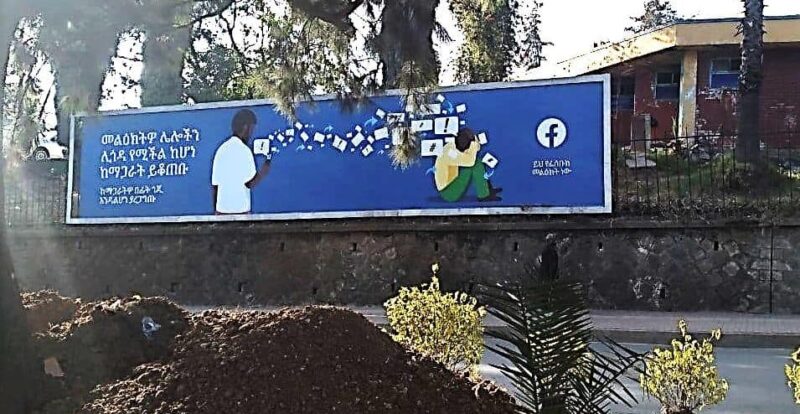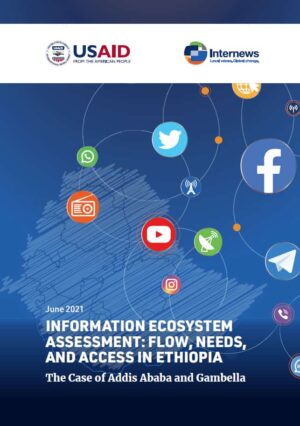Read the Report
For long, Ethiopia ranked among the worst countries globally for media freedom as its leaders were accused of systematic harassment and silencing of opposing voices. However, following reforms started in 2017, the government began to open up the media space by releasing journalists and bloggers from prison, unblocking hundreds of jammed news websites and facilitating media law reforms. As a result of these reforms, Ethiopia has improved its ranking in the World Press Freedom Index. Yet, the media landscape remains fluid with a combination of positive and negative developments.
The Information Ecosystem Assessment (IEA) employed guidelines developed by Internews. To gain a comprehensive understanding of both urban and peri/urban/rural locations, the assessment was conducted in two locations in Ethiopia: Gambella Region and Addis Ababa City Administration. A total of 240 respondents participated in the assessment, of which about one-third are female.
The findings of the study indicate that while there is a more open space for the media to get information and share with the community since 2018, there are still major gaps in the areas of access to timely information by the media, infrastructure for mainstream media operations in the regions, technical capacity of media practitioners, and information verification mechanisms.

